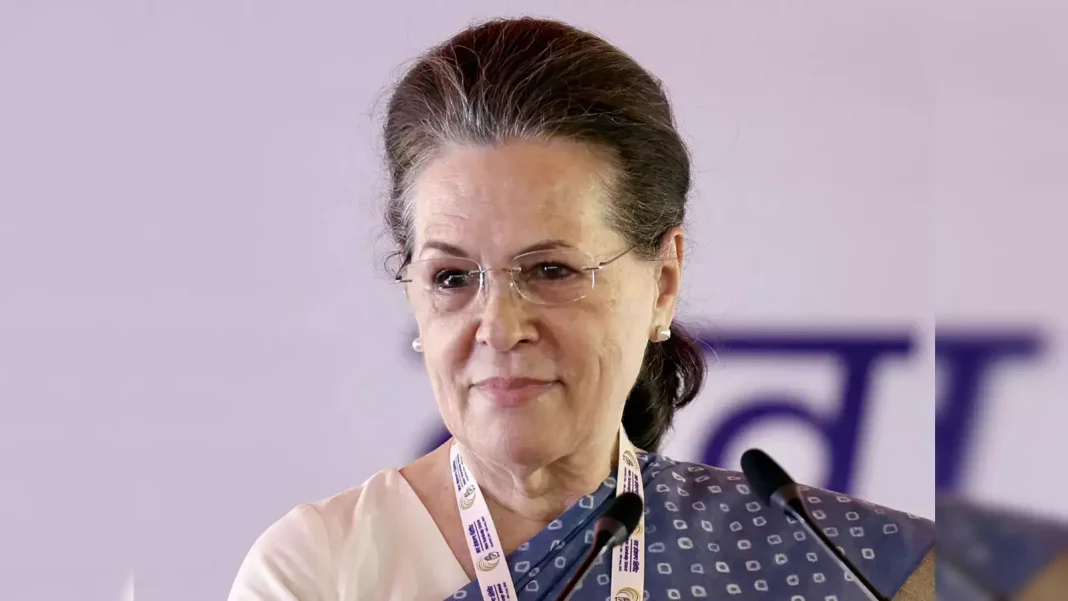In a recent political controversy, Congress leader Sonia Gandhi’s remarks about President Droupadi Murmu have sparked nationwide debate. The statement, which surfaced amid ongoing tensions between the ruling Bharatiya Janata Party (BJP) and the Congress, has drawn sharp reactions from political leaders and the public alike. The issue raises significant questions about political discourse, respect for constitutional positions, and the broader implications of such remarks on India’s political landscape.
In This Article:
As the controversy continues to dominate headlines, political analysts argue that such disputes divert attention from pressing national issues. While debates over political statements are essential for a functioning democracy, excessive focus on verbal sparring often sidelines discussions on governance, economic reforms, and social welfare. This incident underscores the need for a more mature and issue-based political discourse that prioritizes development over rhetoric.
What Happened?
During a recent discussion, Sonia Gandhi reportedly made remarks that many interpreted as undermining the stature of President Droupadi Murmu. While the exact wording remains a point of contention, BJP leaders were quick to criticize Gandhi, accusing her of being disrespectful to the country’s first tribal woman President. The BJP alleged that the remarks reflect the Congress party’s historical disregard for leaders outside its ideological sphere.
Political Reactions and Outrage
The BJP swiftly condemned Sonia Gandhi’s comments, with party spokespersons and leaders taking to social media and press conferences to express their disapproval. Prime Minister Narendra Modi, along with other senior BJP leaders, emphasized the need to uphold the dignity of constitutional offices and accused the Congress of displaying an elitist mindset.
On the other hand, Congress leaders defended Sonia Gandhi, stating that her words were being misinterpreted and taken out of context for political gain. Senior Congress members argued that Gandhi has always upheld democratic values and shown respect for constitutional positions.
Public and Social Media Response
The controversy quickly gained traction on social media, with #SoniaGandhi and #DroupadiMurmu trending on Twitter. Public opinion remains divided, with some viewing the remarks as inappropriate and others believing the BJP is using them as a tool for political advantage. Memes, debates, and discussions flooded social media platforms, making it one of the most talked-about political issues of the week.
Impact on the Political Landscape
- BJP’s Political Strategy: The ruling party is likely to use this controversy to strengthen its support base, particularly among tribal communities. By portraying Congress as dismissive of the first tribal woman President, the BJP aims to consolidate votes in upcoming elections.
- Congress’s Defense Mode: The Congress party now finds itself on the defensive, clarifying and justifying Gandhi’s remarks. With elections approaching, the party cannot afford to alienate voters, making damage control a top priority.
- Broader Implications: This controversy highlights the increasing polarization in Indian politics, where every statement is scrutinized and turned into a political weapon. It also underscores the need for a more respectful political discourse that prioritizes governance over rhetoric.
Historical Context of Political Disputes
This is not the first time that Indian politics has witnessed such controversies. Several past leaders have faced backlash over statements about constitutional authorities. The pattern suggests that such disputes are often strategically leveraged to gain political mileage, especially before elections.
Conclusion
The controversy surrounding Sonia Gandhi’s remarks about President Droupadi Murmu serves as a reminder of the volatile nature of Indian politics. As political parties continue to engage in verbal battles, it remains crucial for leaders to exercise caution in their statements. Respect for constitutional offices should remain paramount, and political discourse should focus on constructive dialogue rather than personal attacks. Whether this issue will have a lasting impact on upcoming elections remains to be seen, but it undoubtedly adds another layer to the ongoing political dynamics in India.
Also read – Indonesian President’s “Indian DNA” Remark Highlights Strong Cultural Ties



